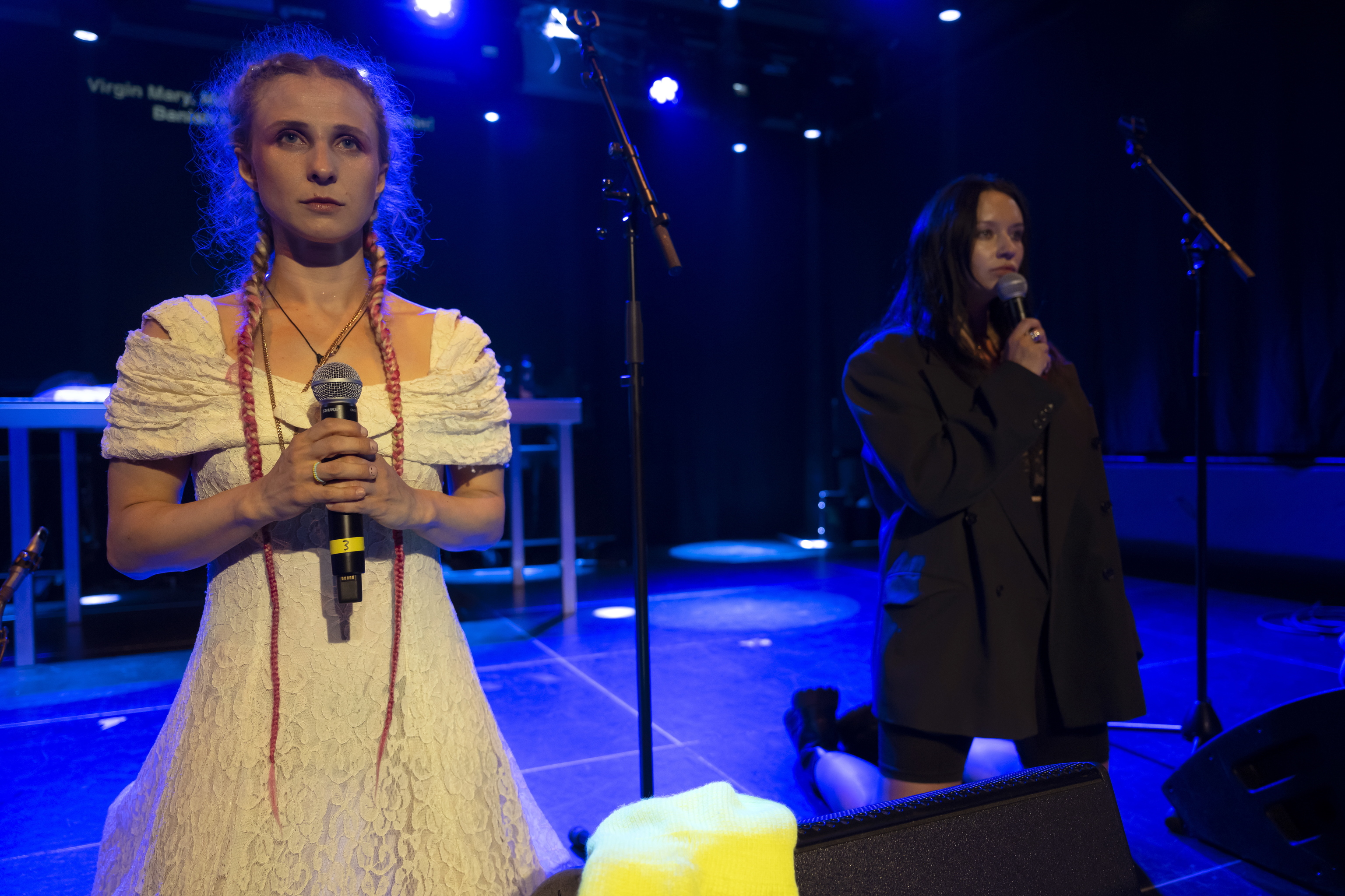Russia "Erotic ghosts", that private life for which Putin hates being asked
Russia Ramzan Kadyorv, the "holy war" in Ukraine of the Chechen leader who wears Prada boots
An
ex-police officer befriends an ex-convict, and the two become public enemies of the Russian state
.
This could be the plot of a film by the Russian Tarantino, Aleksei Balavanov, or the lyrics of a song by
blatnaya pesnya
, a highly popular musical genre equivalent to the Spanish rumba quinqui whose lyrics speak of prison, abuse of authority and yearning for freedom. .
However, it is about the real life trajectory of
Olga Borisova
(29) and
Maria Aliojina
(34), visible faces of the group
Pussy Riot
.
Now, together and from Tenerife, where they have been awarded an Alan Turing award, they
attend LOC as international icons of anti-Putinism, of LGBT rights and exceptional witnesses
of both extremes of the always fascinating and controversial Russian crime and punishment system.
When Maria burst into the Cathedral of Christ the Savior in Moscow in a balaclava, Olga was preparing to be a policeman in St. Petersburg.
When Maria was in a punishment cell serving time for "hooliganism", Olga patrolled the streets of Russia's historic capital on the hunt for hooligans
.
When María recovered her freedom thanks to a pardon, Olga was demoralized by the atmosphere that existed between her uniformed colleagues.
"María and I did not know each other when they arrested her. I saw her case on television and I understood what she had done and why they had done it, but
I did not understand that society became so polarized
and that they wanted to send her to jail," Olga recalls.
A surprise shared by Maria.
"
I did not expect international attention or to be the subject of criminal proceedings when I entered the cathedral
[to do the performance against Putin]. I believed and believe that I am innocent but the investigators told us that we were whores, witches and very guilty. So, we chose the path of resistance. We were pioneers. After us, many people have been prosecuted for offending religious sentiments, "he says.
Upon being sentenced, Maria was taken to a labor camp in Perm, where temperatures reach 16 degrees below zero.
"
It is a copy of the Soviet gulag system. I lived in a barracks
with 80 people and many days there was not even hot water. In the morning they forced us to go to the work area where people spent from 8 to 12 hours a day sewing uniforms for the army," she recalls bitterly.
Considered a "prisoner of conscience" by organizations such as Amnesty International,
María also found her bones in the "shiza", a punishment cell in which she remained for months
while her lawyers presented appeals.
"Before I was released, we managed to get our barracks fixed and several guards fired," she says proudly.
On the other side of the coin was Olga.
"I became
a police officer
when I was 18 years old because I wanted to help people but
I came across an unfair and very misogynistic system where it was just about following orders
," she says.
A body, in which, according to the activist, "there was no government indoctrination.
My colleagues had a proletarian rhetoric. Who they hated was the rich
. My salary was about 500 euros. Now the situation is different," he says.
"My boss treated me badly, put pressure on me. I
thought the problem was sexism and misogyny but then I realized it was corruption and injustice
. There is constant abuse of power. I had coffee in the morning with colleagues who for In the afternoon they took money from the immigrants and that was not right," says the former agent.
The Pussy Riot, Maria Aliojina and Olga Borisova, during a performance.
Less than two years after enlisting, Olga left the police force.
Then she met Maria, they became friends and she began to join
Pussy Riot
, a musical and activist group that
considers the president of her country as the "great culprit" of the evils of Russian society
, such as discrimination against the LGTB community.
.
"
Russian society has problems of homophobia and patriarchy, but it is Putin's fault
. In 2012, he was left without a political project and began to
pressure the population with Christian and conservative propaganda
. He and the state are responsible for the hatred," remarks Maria.
"Since then, he has used government resources to the point of declaring gays enemies of the state as was the case in the Soviet Union."
Conforms to The Trust Project criteria
Know more
Russia
Gay pride

